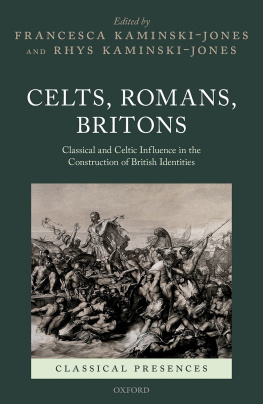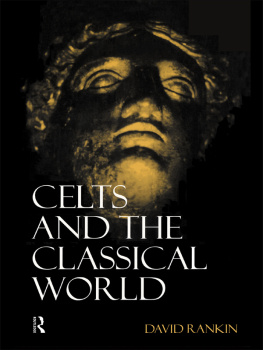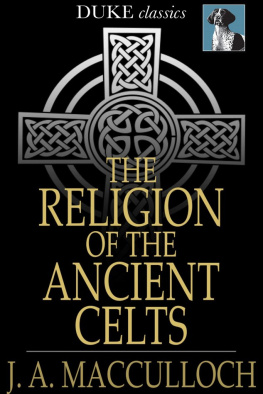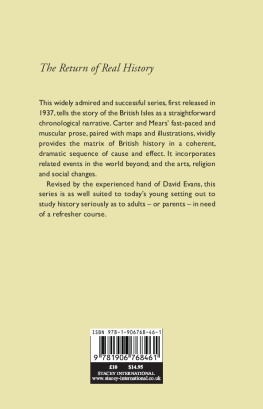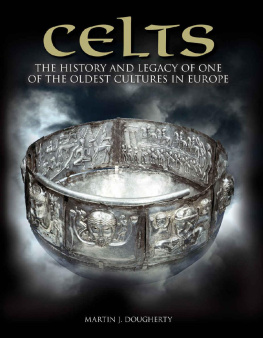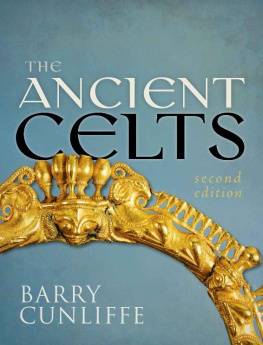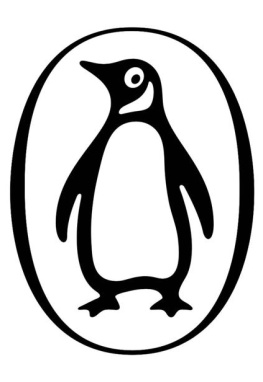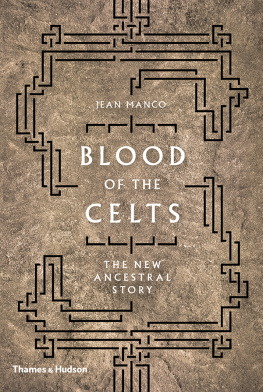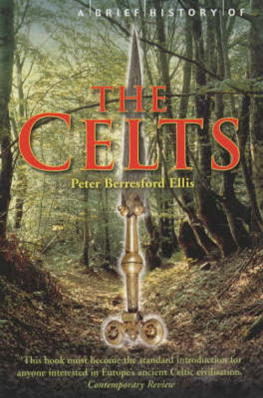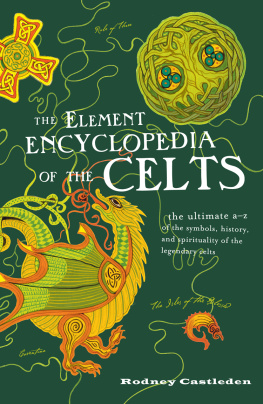Nora Chadwick - The Celts: Second Edition
Here you can read online Nora Chadwick - The Celts: Second Edition full text of the book (entire story) in english for free. Download pdf and epub, get meaning, cover and reviews about this ebook. year: 1998, publisher: Penguin Books, genre: Religion. Description of the work, (preface) as well as reviews are available. Best literature library LitArk.com created for fans of good reading and offers a wide selection of genres:
Romance novel
Science fiction
Adventure
Detective
Science
History
Home and family
Prose
Art
Politics
Computer
Non-fiction
Religion
Business
Children
Humor
Choose a favorite category and find really read worthwhile books. Enjoy immersion in the world of imagination, feel the emotions of the characters or learn something new for yourself, make an fascinating discovery.

- Book:The Celts: Second Edition
- Author:
- Publisher:Penguin Books
- Genre:
- Year:1998
- Rating:5 / 5
- Favourites:Add to favourites
- Your mark:
- 100
- 1
- 2
- 3
- 4
- 5
The Celts: Second Edition: summary, description and annotation
We offer to read an annotation, description, summary or preface (depends on what the author of the book "The Celts: Second Edition" wrote himself). If you haven't found the necessary information about the book — write in the comments, we will try to find it.
The Celts: Second Edition — read online for free the complete book (whole text) full work
Below is the text of the book, divided by pages. System saving the place of the last page read, allows you to conveniently read the book "The Celts: Second Edition" online for free, without having to search again every time where you left off. Put a bookmark, and you can go to the page where you finished reading at any time.
Font size:
Interval:
Bookmark:
PENGUIN BOOKS
THE CELTS
Nora Chadwick was born in 1891 and went to Newnham College, Cambridge, where she was later an Honorary Life Fellow. In 1922 she married Hector Munro Chadwick (d. 1947), Professor of Anglo-Saxon in the University of Cambridge. Most of her life was spent doing research, mainly into the Celts. She held appointments at many universities throughout the British Isles, and had many degrees conferred upon her. She was University Lecturer in the Early History and Culture of the British Isles in the University of Cambridge from 1950 until 1958, and lectured in the Universities of London, Edinburgh, Wales, Oxford and Durham. In 1965 she lectured to the British Academy on The Colonization of Brittany from Celtic Britain. Nora Chadwick wrote many books and articles in connection with her subject, and broadcast several times in England and Wales. In 1961 she was awarded the CBE. She died in 1972.
Barry Cunliffe was born in Portsmouth in 1939, and studied Archaeology and Anthropology at Cambridge. From 1963 to 1966 he was Assistant Lecturer in Archaeology at the University of Bristol and between 1966 and 1972 was Professor of Archaeology at the University of Southampton. In 1972 he became Professor of European Archaeology at the University of Oxford. He has excavated widely in Britain and abroad, specializing in the Iron Age period, and he is currently excavating an Iron Age settlement at Le Yaudet in Brittany. His books include The Celtic World (1979), Iron Age Communities in Britain (1991) and Danebury (1993).
Nora Chadwick
WITH AN
INTRODUCTORY CHAPTER
BY BARRY CUNLIFFE

PENGUIN BOOKS
PENGUIN BOOKS
Published by the Penguin Group
Penguin Books Ltd, 80 Strand, London WC2R 0RL , England
Penguin Books USA Inc., 375 Hudson Street, New York, New York 10014, USA
Penguin Books Australia Ltd, Ringwood, Victoria, Australia
Penguin Books Canada Ltd, 10 Alcorn Avenue, Toronto, Ontario, Canada M4V 3B2
Penguin Books (NZ) Ltd, 182190 Wairau Road, Auckland 10, New Zealand
Penguin Books Ltd, Registered Offices: 80 Strand, London WC2R 0RL , England
First published by Pelican Books 1971
Reprinted in Penguin Books 1991
Reprinted with a new introductory chapter, 1997
10
Copyright Nora Chadwick, 1971
Introductory chapter copyright Barry Cunliffe, 1997
All rights reserved
Except in the United States of America, this book is sold subject
to the condition that it shall not, by way of trade or otherwise, be lent,
re-sold, hired out, or otherwise circulated without the publishers
prior consent in any form of binding or cover other than that in
which it is published and without a similar condition including this
condition being imposed on the subsequent purchaser
978-0-14-193710-6
IN SEARCH OF THE CELTS,
BY BARRY CUNLIFFE
THE ORIGINS OF THE CELTIC KINGDOMS
IN BRITAIN AND IRELAND
THE DEVELOPMENT OF THE CELTIC
KINGDOMS OF THE WEST
5 A . The Athlone Plaque, 8 A.D. National Museum of Ireland
5 B . The Tara Brooch, found near the mouth of the Boyne, Ireland. Eighth century A.D. National Museum of Ireland
T HE Celts may be taken as a starting-point for a study of the long series of peoples whose arrival and settlement in Britain have contributed to its history. They provide a link between the prehistoric period at the end of which they had emerged as the product of much cultural evolution and the early historic period. The Celts in the prehistoric period had no writing, and so were unable to leave written records of themselves. We know of them from place-names, from the reports of classical writersoften their enemiesand from archaeology. For centuries they have been relegated to the remote parts of our islands, beautiful but somewhat inaccessible, and commercially and politically of little importance. In consequence their part in our history has been neglected. More recently, however, intensified archaeological research has begun to remedy this. A new appreciation of the Celtic peoples, both on the Continent and in the British Isles, has been gained through excavation and other archaeological techniques and has allowed a more accurate assessment of this ancient people, older than the classical Roman world, older than the history of Britain. In so doing it has given an added dimension to the distant past. It has emphasized that the art of writing was a relatively late acquisition as far as the contemporary recording of the history of early Europe and the British Isles is concerned.
We have been in the habit of thinking of the Celts as they were left by their Saxon and Norman conquerors, a somewhat backward and relatively thin population in the less accessible mountain highlands of Scotland and Wales. But this is only the end of the story which stretches much further back into the centuries before Christ. Earlier than this the Celtic peoples occupied at least the greater part of the British Isles. At the time of their greatest power and extent the political divisions of the land were Celtic, their rulers had Celtic names, their laws and institutions and their economy and way of life were all Celtic, from Scotland to Kent, and from the Aran Islands to the North Sea. Indeed, the Celtic peoples of the British Isles formed a part of the great Celtic peoples who occupied and ruled a large part of Europe before their conquest by the Romans.
It is with the origins and development of these Celtic peoples in Britain, their art and their religion first heathen and then Christian and their unique and individual contribution to European society that this book is mainly concerned, up to the time of the gradual transformation of their culture in parts of Britain, first under the Romans and later by the Saxons. The Celts of Britain and Ireland are not the earliest we know, nor are they the Celts of widest distribution. They are, however, the Celtic peoples about whom we know most, for they have left us the most complete picture of their civilization, having enjoyed freedom from foreign, especially Roman, conquest longer than their continental neighbours and in parts escaped it altogether and thus preserved their own culture in a purer form. Wherever relevant, however, some discussion of the whole background of the Celtic world is included.
I am greatly indebted to Dr John X. W. P. Corcoran, who read the manuscript in its final stages and made many valuable suggestions, as well as contributing additional material to chapters 5 and 6.
T HE appearance of Nora Chadwicks book The Celts a quarter of a century ago was a milestone in Celtic Studies. It marked the culmination of a lifetimes study by one of our greatest Celtic scholars, a distillation of knowledge and wisdom presented with consummate ease to delight and inform fellow scholars and the general reader alike. It was then, and is still, a masterpiece and we are all indebted to its publishers for keeping the work in print. Nora Chadwick had an encyclopaedic knowledge of the Celtic world but her particular interest lay in the later period when Celtic culture was restricted to the islands of Britain and Ireland and the peninsula of Brittany. For those of us approaching the Celts from the depths of prehistory this was the Celtic twilight, but in the hands of Nora Chadwick the twilight became an Indian summer a period which saw a remarkable cultural flowering, with echoes reverberating deep from the past yet a distinct phenomenon with quality and energy of its own.
In the last twenty-five years the study of the Celts has received a great deal of attention and much that is new has been discovered. This is especially true of the earlier period before the Roman invasion. Throughout Europe, many hundreds, probably thousands, of excavations have been undertaken and huge quantities of new data have flooded our museums and learned journals. Inevitably, new perceptions and new theories have been developed to contain it and these continue to be debated with enthusiasm. For the later period that of the Insular Celts the number of new excavations and discoveries has been slight in comparison, though new insights continue to be offered as the broad range of historical, literary and linguistic studies continues. For anyone interested in the Celts ancient or more recent it is an exciting period to live through.
Next pageFont size:
Interval:
Bookmark:
Similar books «The Celts: Second Edition»
Look at similar books to The Celts: Second Edition. We have selected literature similar in name and meaning in the hope of providing readers with more options to find new, interesting, not yet read works.
Discussion, reviews of the book The Celts: Second Edition and just readers' own opinions. Leave your comments, write what you think about the work, its meaning or the main characters. Specify what exactly you liked and what you didn't like, and why you think so.

